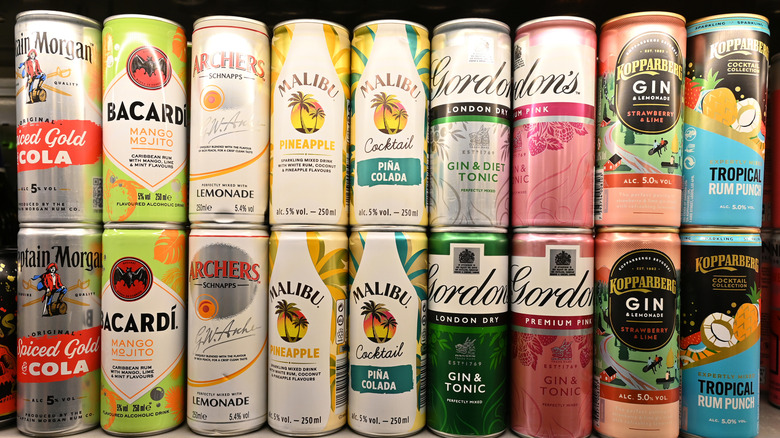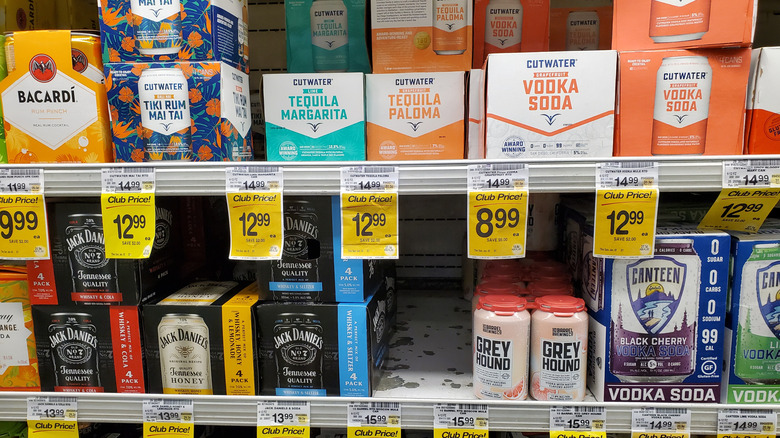The History Of Canned Cocktails Goes Back To The 19th Century
Those of us who came of age in the mid-1990s and early 2000s may be feeling a little bewildered by the rising popularity of canned cocktails. Back then, canned and bottled malt beverages and wine coolers like Zima, Smirnoff Ice, and Mike's Hard Lemonades were snubbed by newly-legal consumers as "mom drinks," which made them decidedly uncool. But today, canned cocktails are everywhere, with more and more springing up seemingly overnight, and everyone from stealthy college freshmen to brunching grandmas can't get enough of them. (We ranked 28 canned cocktails if you're looking for a new favorite.) How the heck did we get here?
Canned cocktails are far from a new phenomenon. One of the earliest commercial canned cocktails in America was Heublein's Club Cocktails, which hit the market in 1892, but even that wasn't actually a first. Bars were known to mix and bottle their house cocktails and sell them at retail along with other bottled liquors in the mid-1800s when regulations on the sale of liquor were looser, allowing guests to take their favorite beverages home with them from the bar.
Premade cocktails flourished as a matter of necessity
Pre-Prohibition, few people were mixing cocktails at home, so canned and bottled ready-to-drink beverages flourished. However, when Prohibition ended, these portable mixed drinks were taxed at a higher liquor rate, even if liquor only made up a small fraction of the drink's total volume. As a result, flavored malt beverages and wine coolers that were taxed at a lower beer and wine rate eventually took the lead in the bottled boozy beverage race.
In the late 2000s through the 2010s, flavored seltzers like White Claw grew in popularity due to the continued taxation of canned cocktails as liquor. When the pandemic shuttered bars and restaurants in 2020, folks became more willing to pay the extra tax for the kind of cocktails they would have enjoyed during a night out, and a new boom began.
Today's premade cocktails have plenty of perks. Consumers no longer need to stock a full home bar of liquor to have a variety of cocktails at their fingertips, making it easy to sample all kinds of beverages. Plus, in many "control" states where hard liquor can only be sold in liquor stores, pre-mixed cocktails slip through a loophole and can be picked up in regular grocery stores.

